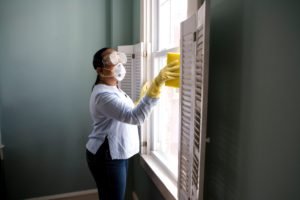Drywall installation may seem like a simple process, but there are some key things to discuss with your contractor before work begins. Here are five things that should be covered before the installation crew arrives on site.
Each home is unique and will have different needs when it comes to drywall installation. Depending on your project, you may need to talk about the type of drywall to use, where to place seams, and more. By discussing these details beforehand, you can ensure that the drywall installation goes smoothly and efficiently.
Budget and Pricing
It’s always good to know a rough estimate of how much your project will cost before you start. This way, you won’t be surprised by any additional costs that may come up during the project. This is especially important if you are doing a remodel and adding new things such as lighting fixtures or appliances.
Be sure to ask about the cost of electrical work and plumbing work if necessary. Also, be sure to ask about the cost of materials such as drywall, paint, trim, and hardware. If you are doing a remodel, make sure your contractor knows exactly what items need to be replaced and what items will remain in place (i.e., existing flooring, cabinets, and countertops).
When pricing drywall jobs, contractors either base it on the number of hours required to complete the project or by the square footage of drywall installed.
Existing Wall Structure
Is the wall in good shape? Is it straight? Is there a bulge or lean to it? How thick is it? What are the studs made of and what condition are they in? If you have access to the attic, check for shrinkage cracks in the ceiling below. These cracks may be an indication that your foundation is settling. The same goes for cracks in the basement ceiling.
Type of Drywall
There are many types of drywall in the market today, but the most common types include gypsum board, fiberglass board, and cement board. The most popular type is gypsum board (also known as sheetrock or wallboard) because it is the least expensive.
Fiberglass board is more expensive than gypsum but it’s stronger and more durable and therefore a better choice for high traffic areas such as hallways and stairwells. A cement board is also more expensive than gypsum but it’s very strong and can be used in any room in your home including bathrooms because it won’t absorb moisture like fiberglass will.
It’s also a good choice if you have pets that may scratch at your walls or if you have kids who like to draw on them with crayons!
New Plumbing
If you are adding a new sink, tub, or shower, make sure you know where it will go and how much space it will take up on the wall before installation begins. If you are installing a new toilet, be sure to ask about the distance between the water supply line and the toilet flange.
The distance should be no less than 6″ and no more than 12″. If not, your contractor may have to install an extension pipe. Also, make sure that your contractor installs a wax ring with each new toilet installation. This is very important! Without it, the toilet may leak when the tank is filled with water.
Scheduling
Make sure that your contractor has the time needed to complete your job on schedule so that they don’t have to rush through it at the end or leave out certain details because they ran out of time.
Make sure to account for the unexpected circumstance and delays caused by them in the decided timeline for the job. Are there any holidays coming up that may affect when your job can be completed? For example, many contractors take off around Thanksgiving and Christmas so plan accordingly!
We hope that this blog post has been helpful for you as you plan your drywall installation. Before you finalize your plans, be sure to chat with your contractor about the different types of insulation available and what will work best in your home. And don’t forget to ask about soundproofing – it can make a big difference in the end result! Thanks for reading.


